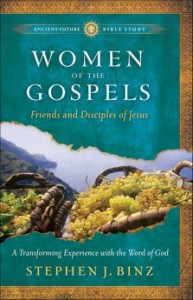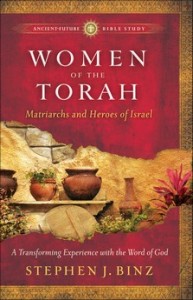These Stories Have Your Soap Opera Beat – And They’re True
 While there’s very little value in the daytime soaps, the more sophisticated versions that we find on PBS are most entertaining, the latest being Downton Abbey —and I readily admit to being a fan. We can pretend that we’re interested in the history, the décor or the period costumes, but really, it’s the turbulent plot that has us riveted. The story follows an English aristocrat, his wealthy American-born wife, three lovely daughters and various headstrong relations. And, like any British historical drama, their story finds itself entangled with the lives of their servants—those who cook and clean for them, those who dress them and drive them about. Each has his place, and most refuse to be entirely bound by class or convention—especially as Europe emerges from yet another horrific war.
While there’s very little value in the daytime soaps, the more sophisticated versions that we find on PBS are most entertaining, the latest being Downton Abbey —and I readily admit to being a fan. We can pretend that we’re interested in the history, the décor or the period costumes, but really, it’s the turbulent plot that has us riveted. The story follows an English aristocrat, his wealthy American-born wife, three lovely daughters and various headstrong relations. And, like any British historical drama, their story finds itself entangled with the lives of their servants—those who cook and clean for them, those who dress them and drive them about. Each has his place, and most refuse to be entirely bound by class or convention—especially as Europe emerges from yet another horrific war.
What drives this story—like all stories across the centuries—are the questions of inheritance, alliances, and aspirations. There are few parents who don’t agonize over their children’s futures, since feeding them, educating them and preparing them for adulthood is the very province of families. In the case of this family, there is the driving question of an heir, the choice of husbands for the three very different daughters, and the good name of the family which is threatened by encroaching scandal. What viewers find intriguing is how the veiled actions of the lesser characters drive the plot. Thus, even a chauffeur or a ladies’ maid can undermine the larger schemes of those more powerful.
But it has ever been thus, and with that devious teaser, let me turn your attention now to a tremendous new Bible Study that women readers especially will find fascinating. Since I write specifically on the topic of authentic femininity, I asked for two titles in the Ancient-Future Bible Study series, Women of the Torah and Women of the Gospels, both written by Stephen J. Binz. Having taken time to study his approach and content, I cannot offer a heartier commendation for these two books.
The first title is devoted to the “Matriarchs and Heroes of Israel,” and the groundwork is first laid by explaining the time-honored tradition of lectio divina, which goes back millennia and incorporates study, reflection, prayer, discernment and contemplative action. It is precisely through this method of interacting with God’s written word that His ever-present love for us is found, and His will distinguished amidst all the distractions of the world.
laid by explaining the time-honored tradition of lectio divina, which goes back millennia and incorporates study, reflection, prayer, discernment and contemplative action. It is precisely through this method of interacting with God’s written word that His ever-present love for us is found, and His will distinguished amidst all the distractions of the world.
Besides the excellent foundation in how to approach the Scriptures, the author carefully outlines the traditions and conventions with which the characters were legally and socially bound. There is no judgment, but simply a respectful explanation—since all cultures evolve to encourage what they value and discourage what they find harmful; and we know that God—in His providence—used this system and the varied personalities therein to bring the divine plan to its fulfillment. And that plan often depended on the weak, who were able to undermine the larger schemes of those more powerful.
Each book has thirty segments (broken into five sections of six) and introduces the reader to women of the Bible. Women of the Torah first explains Creation and The Fall, and then provides the essential information about marriage contracts, inheritance rights and tribal customs. The lessons then become lively accounts of women who lived within certain constraints—but whose aspirations and fears were entirely similar to our own.
 While we may already be more familiar with women in the New Testament, the second book, devoted to “Friends and Disciples of Jesus” reminds us of the various boundaries that existed for women at that time, and specifically what Jesus left in place and what he sundered for the benefit of authentic freedom.
While we may already be more familiar with women in the New Testament, the second book, devoted to “Friends and Disciples of Jesus” reminds us of the various boundaries that existed for women at that time, and specifically what Jesus left in place and what he sundered for the benefit of authentic freedom.
In the end, the human condition is fundamentally the same around the world and throughout time—and these books allow us to see that the deepest desires of a wife’s heart, the most sincere motherly longings are shared by most women. There will always be the connivers, the spoilers, and the spoiled, just as there will always be those who mourn and weep, but what should give us encouragement in all these cases is that God reaches down to offer hope and fulfillment to each soul, no matter what transpired before his Advent.
Lent would be a lovely time to begin this Bible study—and one could do it alone, in a small group, or within a larger setting. A workable format is provided—as are thoughtful questions, and if one learns the lectio divino approach to Sacred Scripture, it will be a rich tool to be used for the years to come.
So let Lord Grantham and his daughters go until after Easter, and take the time to discover those valuable women who have been an integral part of God’s plan since the beginning. For in discovering what drove them and how they discerned their paths, you will have a far better understanding of your own vocation and what God is asking of you each day.
These books can be ordered through Brazos Press.

